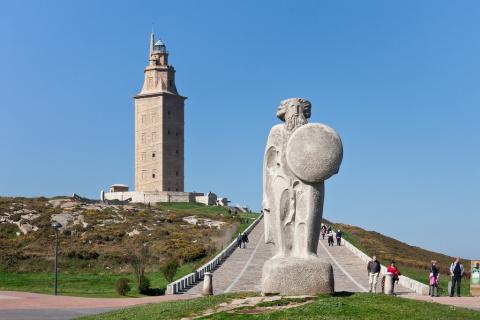The General Assembly of FIEC (Fédération Internationale des Associations d’Études Classiques) took place in London on July 4th. It was followed by a four-day conference in combination with the annual conference of the Classical Association, July 5-8. My report will only cover the General Assembly. 47 associations were represented. Besides myself, other scholars present from the US and Canada were Alison Keith (CAC), Alden Smith (CAMWS), Dee Clayman (SIBC/l’Année Philologique), and Benjamin Acosta-Hughes (FIEC Board Member).
The main item of business was the election of new FIEC Board members. Long-time President Franco Montanari was stepping down, as was long-time Secretary General Paul Schubert, two Vice-Presidents and one Adjunct Board member. In their place Gunhild Vidén (Sweden, formerly FIEC Treasurer) was elected President, Sabine Huebner (Switzerland) was elected Secretary-General, and Valérie Fromentin (France) was elected Treasurer. It was noted that the top leaders of FIEC are now all women.
Adjunct Board Members re-elected were Benjamin Acosta-Hughes (USA), Jesús de la Villa (Spain) and Martha Irigoyen (Mexico). New Adjunct Board Members elected were Andreas Fountoulakis (Greece), André Lardinois (Netherlands), Fausto Montana (Italy), and Catherine Steel (UK).
After the election, the Assembly took up the Statement on Publications and Abstracts that I had proposed on behalf of the SCS. After a short discussion, the Statement was approved with one small addition regarding the citation of manuscripts. (see below)
The Assembly then approved a resolution requesting the Latin and Greek be added to the UNESCO List of Intangible Cultural Heritage. (see below)
Finally, Martha Irigoyen invited the Assembly to meet again at the next FIEC Congress in Mexico in 2022. The date is not fixed but it will probably be in August.
Statement on the format of abstracts and keywords for the submission of articles
(approved by the FIEC General Assembly of Delegates, London July 4th, 2019)
L’Année Philologique is the main database for publications in Classical studies. In the interest of all scholars, authors and researchers, it seems important to define some basic requirements that will make it easier for the local branches of L’Année Philologique to analyze the entries. The following is a recommendation made to all associations of Classical studies affiliated to FIEC. Associations are kindly asked to circulate this statement among their members.
In view of the ever-growing number of articles and chapters in collective volumes processed for registration by L’Année Philologique, and in order to reduce the amount of work required of the various branches of L’Année Philologique, it is recommended that journal and volume editors regard it as a best practice of the efficient analysis of the data that each article or chapter be accompanied by a brief abstract and a list of keywords.
To ensure the utility of abstracts and keywords for the efficient analysis of data for L’Année Philologique, please take note of the following guidelines:
- The abstract should give a concise but informative summary of the article’s or chapter’s content, indicating important points of argumentation and main conclusions.
- The abstract should refer to the types of evidence adduced in drawing these conclusions, and give specific information about the most important items.
- Literary: cite the author or genre, and if an author, cite the works discussed and the most significant passages (the recommended abbreviations of Greek works and authors are as in DGE <http://dge.cchs.csic.es/lst/lst1.htm>, and of Latin works and authors as in TLL).
- Epigraphical: cite the most significant inscriptions, with a dating (for the standard abbreviations <http://dge.cchs.csic.es/lst/lst3.htm>).
- Papyrological: cite the papyri and ostraka, with a dating (for the standard abbreviations, use the Checklist at <http://papyri.info/docs/checklist> or DGE <http://dge.cchs.csic.es/lst/lst2.htm>).
- Artistic: cite the significant pieces, remembering to include museum inventory numbers.
- Manuscript evidence: cite the library and shelfmark ; if available, add the reference to a standard electronic database.
- Archaeological: include the name of the sponsoring institution and the nature of the evidence (such as field report).
Whenever possible, abstracts ought to be provided with a Creative Commons license, since the point of the abstract is to inform potential readers and attract them to the full article, not to earn revenue through the assertion of copyright restrictions.
FIEC resolution towards supporting the registration of Ancient Greek and Latin in the UNESCO List of Intangible Cultural Heritage
(approved by the FIEC General Assembly of Delegates, London July 4th, 2019)
The International Federation of Associations of Classical Studies (FIEC) supports the registration of Ancient Greek and Latin in the UNESCO List of Intangible Cultural Heritage. Those two languages have had a deep impact on the Mediterranean area (in a wide sense) over several millenia; this impact is still to be felt very strongly today, not only in that area, but also in the world at large.
Ancient Greek was the main language spoken and written in Archaic and Classical Greece, as well as in the whole Eastern Mediterranean from the Hellenistic period till the end of the Byzantine period. In contact with other languages (notably Semitic languages and Latin), it has gradually evolved without changing its basic structure, to become Modern Greek.
Latin started in the Italic peninsula and, as Roman power extended over the centuries, has spread to most areas of present-day Europe, where it evolved to produce the Romance languages. Through the process of colonization, Latin has also spread to other parts of the world, notably the Americas.
Ancient Greek and Latin were used by authors who wrote many texts that are considered as fundamental by people of numerous countries around the world. They constitute the origin of many forms of literature through more than two millennia, and they still have a considerable impact on today’s literature.
Although Ancient Greek and Latin are no longer in use in modern daily life, the understanding of those languages is maintained in schools and universities everywhere. This knowledge must be preserved and deserves the active support of governments and of their teaching institutions.

